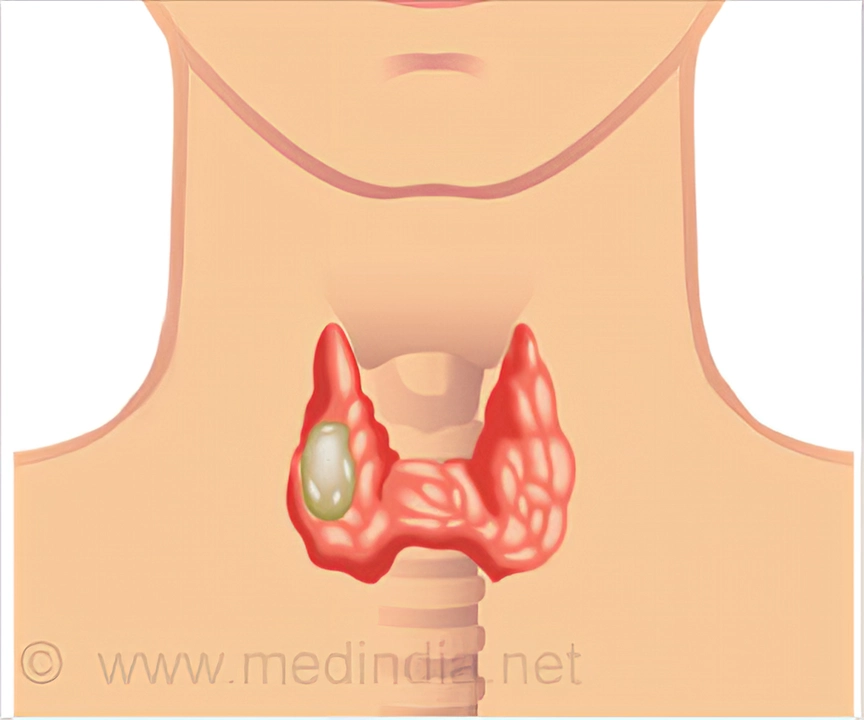Thyroid Cancer: What You Need to Know
Thyroid cancer is one of the fastest rising cancer diagnoses, but here's the good part: most thyroid cancers are treatable and many people go on to live a normal life. Knowing the signs, tests, and treatment options makes a huge difference when you or someone you care about faces this diagnosis.
Common early signs include a lump or swelling in the neck, a feeling of fullness, hoarseness, trouble swallowing, or a persistent cough. Not every lump is cancer - thyroid nodules are common - but any new or growing lump deserves a checkup.
If you notice symptoms, see your primary doctor or an ENT/endocrinologist. They'll usually start with a neck exam and order an ultrasound. From there they may check thyroid function with blood tests and recommend a fine-needle biopsy if a suspicious nodule shows up on imaging.
How doctors diagnose and stage thyroid cancer
Ultrasound looks at size, shape, and suspicious features of nodules. A fine-needle aspiration (FNA) biopsy takes a small sample to check cells under a microscope. Blood tests measure TSH and sometimes other hormones; they help guide treatment but don't diagnose cancer by themselves.
Staging describes whether cancer is limited to the thyroid, has spread to lymph nodes, or is elsewhere. Staging affects treatment choices and follow-up plans. Your care team will explain what your stage means in plain language and how that guides next steps.
Treatment choices and what to expect
Surgery is the most common first step. That might be removing part of the thyroid (lobectomy) or the whole gland (total thyroidectomy). Lymph nodes may be removed if imaging or biopsy suggests spread.
Radioactive iodine (RAI) is often used after surgery for certain types of thyroid cancer to kill leftover cells. RAI isn't used for every type - your doctor will explain if you're a candidate. Many patients also need lifelong thyroid hormone pills to replace the missing gland and to keep TSH at a level that lowers recurrence risk.
For aggressive or advanced cases, targeted drugs, chemotherapy, or external beam radiation may be options. Clinical trials are worth asking about if standard treatments aren't working.
Most thyroid cancers - especially papillary types - have an excellent outlook. Still, follow-up matters: regular blood tests, neck ultrasounds, and doctor visits help catch any recurrence early.
Practical tips: keep a copy of your pathology report, track test dates and results, and bring a list of questions to appointments (e.g., "What type and stage is my cancer?" "Do I need RAI?" "How will hormone replacement work?"). Eat a balanced diet, stay active, and get support when you need it.
Want more on related medications, side effects, or supplements? Browse our articles tagged "thyroid cancer" for clear, practical guides and real-world tips. Always discuss treatment choices with your medical team before making decisions.
Ask about second opinions, insurance coverage, and fertility preservation if relevant. Keep a current meds list and mention any supplements before starting treatment. Write questions down before appointments.
- Colin Hurd
- Jun, 2 2023
- 13 Comments
Thyroid Cancer: Understanding the Causes, Symptoms, and Treatment Options
In my recent research on thyroid cancer, I've discovered that it's primarily caused by DNA mutations which can be triggered by factors like exposure to radiation or a family history of the disease. Common symptoms to watch out for include a lump in the neck, difficulty swallowing, and voice changes. It's important to consult a doctor if you experience these signs, as early detection increases the chances of successful treatment. Treatment options vary depending on the type and stage of cancer, but they usually include surgery, radioactive iodine therapy, hormone therapy, or radiation therapy. As a blogger, I recommend staying informed about thyroid cancer to help raise awareness and support those affected.

